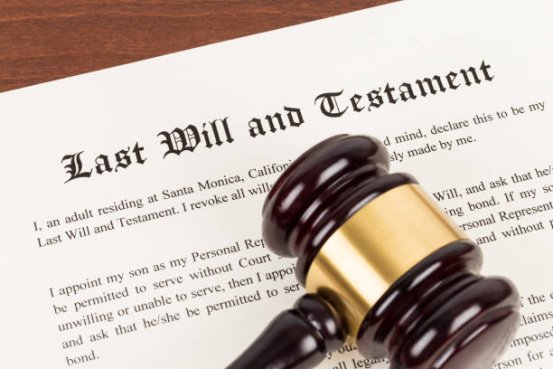How to Pick the Right Will Solicitor for Your Needs
Creating a legally valid will is essential for ensuring your assets are protected and your loved ones are taken care of. This guide outlines the key responsibilities of will solicitors, how to find a trustworthy one near you, what costs to expect, and how to prepare for the process efficiently.
Creating a legally valid will is essential for ensuring your assets are protected and your loved ones are taken care of. This guide outlines the key responsibilities of will solicitors, how to find a trustworthy one near you, what costs to expect, and how to prepare for the process efficiently.

What Does a Will Solicitor Do?
Will solicitors are legal professionals who specialise in drafting wills that accurately reflect your final wishes while complying with all legal standards. Their role begins with collecting detailed information about your financial and personal circumstances—this includes assets such as property, bank accounts, pensions, investments, and any dependents.
Based on this information, the solicitor creates a legally binding will that outlines how your estate should be distributed. The document may also include the appointment of guardians for children under 18 and specific instructions for funeral wishes or charitable donations. A qualified solicitor ensures your will adheres to legal frameworks, including those concerning mental capacity and inheritance laws. This helps avoid family disputes, misinterpretation, or legal challenges after your death.
Many solicitors also provide ongoing support, offering regular reviews and updates to your will, especially when significant life events—such as marriage, divorce, or acquiring new assets—occur.
How to Find a Reputable Will Solicitor Near You
Finding the right solicitor is key to creating a clear and valid will. Here are a few reliable methods:
-
Online Legal Directories: These platforms allow you to search for qualified solicitors, often featuring client reviews and information about their specialisations. Focus on professionals experienced in estate planning or probate law.
-
Personal Recommendations: Ask family, friends, or financial advisors for referrals. Personal experience often leads to trustworthy professionals who deliver a high standard of service.
-
The Law Society’s Directory: This official tool helps you search for accredited solicitors in your area, filtered by their area of expertise—such as wills, trusts, and probate.
Make sure any solicitor you consider is registered with a professional body like the Law Society or STEP (Society of Trust and Estate Practitioners).
Understanding the Costs Involved
Fees for will-writing services vary based on the complexity of your estate and the solicitor’s pricing structure. A straightforward will—covering simple asset division and no special clauses—tends to be the most affordable.
However, if your will involves more complex elements like overseas properties, business ownership, or conditional inheritances, costs may be higher. Some solicitors offer fixed-rate packages for basic wills, while others charge by the hour. Before committing, always request a clear, written quote that outlines all expected costs to avoid any unexpected charges later.
What to Look for When Choosing a Solicitor
Choosing the right professional is about more than just qualifications. Consider the following:
-
Proven experience in will drafting and estate planning
-
Accreditation by recognised legal bodies like STEP
-
Clear and accessible communication style
-
Transparent, reasonable fees
-
Willingness to make future amendments as your circumstances change
Equally important is choosing someone you feel comfortable discussing personal matters with, as the process involves sharing sensitive financial and family information.
Making the Will Process Smoother
Preparation can significantly reduce the time and stress involved in making a will. Here are some tips:
-
Organise Your Documents: Gather records related to property ownership, bank accounts, pensions, life insurance, and any outstanding debts.
-
Define Your Beneficiaries: Decide who will receive what—this may include family members, friends, charities, or other organisations.
-
Plan for Minor Children: If you have children under 18, select guardians and discuss these responsibilities with them beforehand.
-
Appoint Executors: Choose someone you trust to carry out your wishes and manage your estate. You may also appoint a backup executor.
-
Review Regularly: Your will should reflect your current situation. Major life events—such as marriage, a new child, or significant financial changes—should prompt a review.
Frequently Asked Questions
Can I write my own will?
Yes, but DIY wills carry a higher risk of being invalid or misinterpreted. Using a solicitor ensures your will meets all legal requirements and reflects your wishes clearly and accurately.
How long does it take to make a will?
Simple wills can often be completed within a few days if you provide all necessary details. More complex cases may take longer, especially if multiple consultations or legal clauses are required.
What happens if I die without a will?
If you die intestate (without a valid will), your estate will be divided according to the UK’s intestacy rules. This may not align with your personal preferences and could leave out important people or causes you care about.
Final Thoughts
Choosing a skilled and trustworthy will solicitor can give you peace of mind that your affairs are in order and your family will be protected. With careful planning and expert legal advice, you can ensure your final wishes are carried out smoothly and without conflict.
References